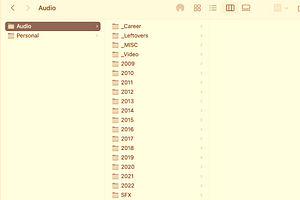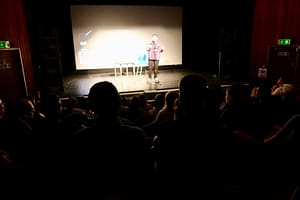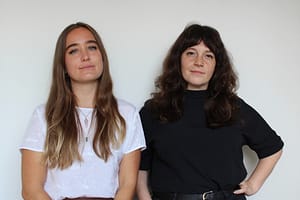
Quick guide to audio file management and naming conventions
I once asked a group of about eight audio makers about file management and the conversation almost ended in a
Dear Jon,
I was sorry to hear you haven’t had a lot of luck growing your initiative, The Edit: a subscriber-based community for indie podcasters that aims to give ‘professional feedback on your podcast for an introductory price of $20/month’.
Hats off for taking the brave step of launching something new, and the even bolder step of openly discussing the challenges you’ve experienced in growing it.
I had a stack of ideas while reading your recent vulnerable newsletter, thanks for allowing me to share them with you. Take them with a bag of salt.
Wrong way round
In the original Mighty Ducks film — also known as ‘D1: The Mighty Ducks’, or ‘Champions’ in Australia, South Africa and the UK (later released as, ‘The Mighty Ducks Are the Champions’ in the UK) — there’s a key scene between Charlie (Joshua Jackson) and Coach Bombay (Emilio Estevez). You might remember it.
As a child Bombay missed a shot in the penalty shootout of the grand final. His team lost. Cruelly, the puck hit the goal post.
In the key scene, Bombay says to Charlie “half an inch and we would have won!” Charlie replies, “yeah, but half an inch the other way and you would have missed completely”.
Bombay had never thought about it that way.
You say, “We can’t get anyone to join The Edit”.
Go half an inch the other way.
We haven’t worked out how to make The Edit enticing enough for people to join, yet.
Shifting the perspective will flip how you approach the challenge.
Get back on the hook
Fine, forget Mighty Ducks. Let me be more direct.
It’s not the customers’ fault they haven’t subscribed to your service.
I try not to blame people for not listening to my podcast.
What are they too busy listening to 99% Invisible? Don’t they like to be entertained? Is it because people just don’t want to listen anymore? It’s literally free — I’m giving it away for nothing, why would you not listen!?
The customer is not the problem.
Nowhere in the vulnerable newsletter did I see any hint that The Edit, and how it was designed and explained (including its format, pay structure, website, etc) might be a reason for why people haven’t joined.
I know it’s so tempting to look for deeper, external issues; it lets you off the hook. Especially when you’ve put a lot of effort (and spent a lot of money) pushing something you’ve worked hard on.
Accept responsibility and then you can take control of how to fix it.
Feedback on feedback
Shout out to The Podcast Coach — it’s true, a lot of people don’t want feedback on their podcast.
But I have great news; you didn’t make The Edit for those people.
You made The Edit because you know some independent producers are dying for quality feedback.
You know people want feedback because of the surge in ‘podcast consultants’ falling from the sky like lemmings.
You know people want feedback because you would have already given up on it if you thought otherwise.
I know there are people who want feedback because I talk to them everyday. They care deeply about their work, changing the culture, and making a difference in listener’s lives. They want to make something they can be proud of, that will be engaging, and have a longer shelf life.
None of these people I know who care enough to ask for feedback fall into the category of podcasting for fame or ‘Rogan money’. To wonder if that style of marketing is the missing link to grow The Edit (infer: because the product does not need to be changed) is mistaken.
More good news
The good news is you’re not giving up. And you shouldn’t.
The good news is you are in control to make the changes you need to grow. You can get more feedback, tweak your website, change the format.
The good news is you get to reset your expectations. You get to have another go. You can start today. But this time, you’ve got seven (paying!) subscribers and a whole lot of knowledge to build on.
An experienced editor is rare: those trusted few who are able to walk the tight rope between directness and empowerment. The Edit is an important project that will help indie producers level up. We need it. Better podcasts will inspire better podcasts, and around we go.
Keep going — Mike Williams

I once asked a group of about eight audio makers about file management and the conversation almost ended in a

The alleyway is stereotypically dark and long. It’s after 1am, I have no idea where I am and my phone’s about to die.

Here’s what to expect from the ‘Who gives a fork?’ live show touring Aug/Sept 2022.

Jill Beytin, co-founder of Bear Radio, describes where the local scene is at including a juicy story about a recent controversy with one of Germany’s public broadcasters.
get the latest news about upcoming projects:
© 2021 mike williams